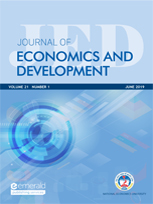The effect of internal control on tax avoidance: the case of Indonesia
Abstract
PurposeThe purpose of this paper is to analyze the effect of internal control on tax avoidance analyzing internal (family ownership) and external (environmental uncertainty) factors on the effectiveness of internal control in preventing tax avoidance.
Design/methodology/approach
First, the authors examine the direct effect of the effectiveness of internal control on tax avoidance. Second, the authors examine the effect of moderation of family ownership and environmental uncertainty on the relationship of the effectiveness of internal control on tax avoidance. Third, the authors divide the full sample into two groups, high and less effectiveness of internal control to examine the direct effect of internal control effectiveness on tax avoidance and when considering moderating variables. Fourth, the authors use two different measures of the effectiveness of internal control.
Findings
This research found that effective internal control can reduce tax avoidance. Family ownership affects the relationship between internal control and tax avoidance, but environmental uncertainty does not influence the relationship between internal control and tax avoidance.
Practical implications
Internal control increases compliance with rules and policies, so companies must design and implement effective internal control to prevent tax avoidance activities in violation of tax regulations.
Originality/value
In contrast to previous studies, this study measures the effectiveness of internal control using the index of internal control practice disclosure and considers internal and external factors that can affect the effectiveness of internal control to prevent tax avoidance.

